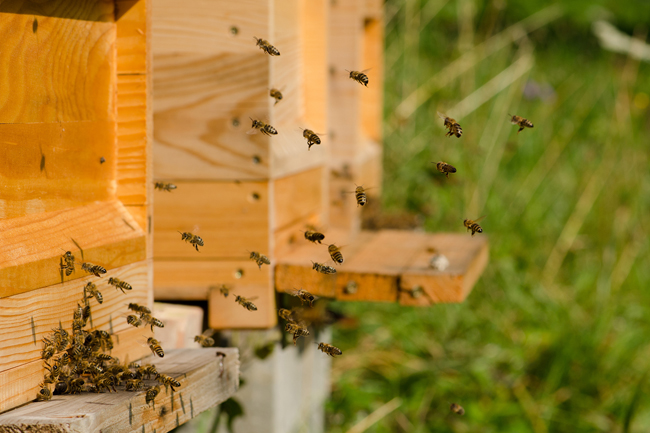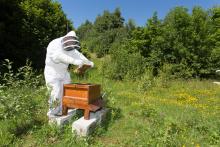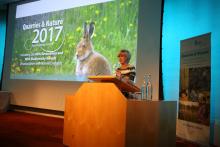
With many species of UK bee on the brink of extinction and some having been lost entirely,
Perceiving wildlife guardianship as part of its corporate role and incorporating farming, wildlife conservation and landscape protection divisions within its operation, EPC-UK has for some time had plans to keep hives and engage the services of a beekeeper at its Rough Close works in Alfreton, Derbyshire, central England.
Earlier in the year the organisation’s land was assessed for flower species suitability, to discover if bee colonies brought on-site would remain healthy and prolific. The assessment was successful, however, following the released findings of the ‘Bees Under Siege’ report by WWF, published on World Bee Day (20th May), EPC-UK has chosen to increase its bee concern activity and further promote bee protection through its actions and communications.
The published report found that from the analysis of 228 species of bee; climate change, habitat loss, pollution and disease are threatening the pollinators.
It revealed that 17 species were regionally extinct – including the Great Yellow Bumblebee, the Potter Flower Bee and the Cliff Mason Bee – and that 25 species are threatened, with another 31 of conservation worry.
“The alarming warnings of biodiversity loss is a great concern to EPC UK,” explains Jackie Sowter, EPC-UK’s business standards coordinator and environmental advisor.
“Humanity cannot continue to exist successfully or healthily without pollinating insects. Whilst last year, the
“As bees’ pollinating services are worth £690 million a year to the UK economy, businesses need to be aware of the impact the declining bee population will have on their operations. However, opportunities are present for corporate organisations to help address the situation.”
Sowter goes on to explain how EPC-UK has brought its beehives onsite with the support of beehive adoption, management & educational service organisation, Plan Bee. This Scotland-based sustainable eco-innovation business provides solutions for organisations to enhance their environmental responsibilities, local communities and green credentials through a fully managed beehive service.
“We’re working with Plan Bee to make an appropriate area of our Rough Close Works site in Alfreton a bee nursery,” Sowter says. “We’ll have in the region of ten hives to begin with, each with the capacity to house 50 – 60,000 bees, depending on the season.
“We’ve also recruited the services of local beekeeper and RSPB employee, Andrew Bailey, who will care for the bees on-site. We hope the scheme will attract sponsors. If this proves successful, we will relocate hives to the land of new bee patrons to further population restoration in different areas, before bringing additional hives on the EPC-UK site to replace those moved.
“In addition to encouraging bee population growth, the Plan Bee team will also conduct educational sessions where groups of up to 30 people can be shown the hives in action and learn more about the significance of the bees’ work.”
Sowter confirms that the selected Derbyshire site is already a prime location for bees, a fact EPC-UK’s head farmer Roger Pile corroborates. There is already enough food for the new bees, however considering recent concerning statistics, the company has chosen to plant two further wildflower meadows on its land to attract additional pollinators.
Having long-used farm land at the company’s Derbyshire and Essex sites to plant crops; raise livestock; further wildlife conservation; and protect landscapes and river course ways, Jackie believes that forming these new environmental alliances and putting pollinator programmes in place will help EPC-UK to remain committed to ‘making a difference’ in concerning environmental times.
“Whilst EPC-UK will always consider human health and safety to be its main priority, the value it places on protecting the environment and eco-system is considerable,” she says. “Our whole organisation is backing this project, with our own MD, Ben Williams, championing the cause. We hope that as we monitor the bees’ progress over coming weeks, we’ll soon be in a position to report good news updates from the hive!”









